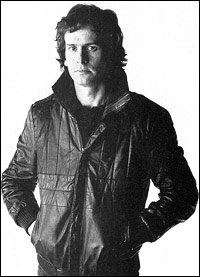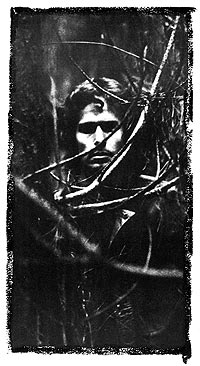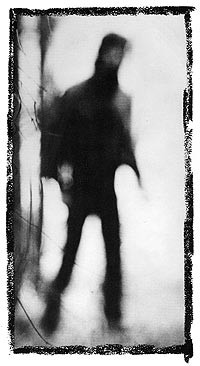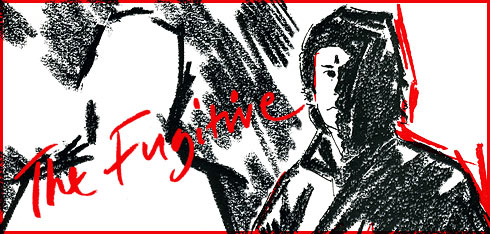- Article
- Read in 4 minutes
Tony Banks – The Fugitive – CD review
In 1983 Tony Banks released his second solo album. The Fugitive was more straightforward than its predecessor, and Tony Banks sang all the songs himself. Tommy Ender gave the album a spin.
Shortly before Genesis were to release their self-titled album Tony Banks, keyboarder and creative head of Genesis, released his second solo album.
Unlike on his debut album A Curious Feeling the songs on The Fugitive are much more accessible. What makes them special is the fact that Tony sings all the songs himself. On the previous concept album all the vocals were done by Kim Beacon. When A Curious Feeling did not turn out too successful Tony thought it pointless to continue that project.

Why, then, did he sing all the songs himself? For one thing he identified with the songs, and for another he wanted to find out for himself what it meant to bee the singer. Like his band mate Phil Collins he recorded demos at home. He recorded the songs on an 8-track, expanded them with guest performances at the band’s own studio, The Farm, and finally also mixed them there.
There are a number of guest musicians on the album. Daryl Stuermer, (live) guitarist with Genesis and Phil collins, plays the guitar. Other musicians involved are Mo Foster (E-bass) and Tony Beard, Steve Gadd and Andy Duncan who all play the drums on different songs. Tony produced the album himself, with Stephen Short as a co-producer. Short had previously been involved with the production of Wind & Wuthering. The Fugitive is a pop / soft-rock album almost throughout. Almost – because there are two interesting instrumentals with some progressive influences.
This is Love
This is Love was the first single. The lyrics were intentionally simple to make it easier for Tony. The song is very catchy, and a music video – the only one from this period – was filmed for it. The 12in single contains an Extended version that has never been put out on CD. The same goes for the second single, And The Wheels Keep Turning.
Man of Spells
After a strong opening song here is a mystical song about the world of wizards. The lyrics are quite interesting, and the vocals satisfactory. A hidden gem for many fans.
And The Wheels Keep Turning
Here is the second single release. A catchy song with a brief instrumental bridge, it is quite radio compatible and bound to lift your spirits. The vocals are worthwhile listening to.
Say You’ll Never Leave Me

A pure-bred catchy heartache a la Tony Banks. This Is Love anticipates it in a poppier way. The song is very close to being schmaltzy, and it has a tendency to get on your nerves if you listen too it too frequently. Admittedly, its quality is not quite up there with the others, and one could have done without it.
Thirty Three’s
Thirty Three’sis the first of two instrumentals on the album. It is chock full of keyboard sounds and varying rhythms. It reminds the reviewer of From The Undertow from A Curious Feeling. Thirty Three’s may not be the best track on the album, but you ought to listen to it and dive into these soundscapes. The second instrumental, Charm, will show how it really could be done.
By You
This song is based on a repeating keyboard bass similar to the DX-7 bass on Land Of Confusion. Choirlike sounds are mixed here. Banks’ high voice may not be to everyone’s liking, and though you would not want to listen to it too often you should give it a spin.
At the Edge of Night
A rockier song. Daryl Stuermer gets a brief guitar solo and helps avoid the impression that you are surrounded by keyboard sounds, a frequent impression with Banks’ solo writings. All in all, a very consistent song, and at more than 6 minutes the longest track on the release. The vocals are fine. At The Edge Of Night is an up-beat song; a shorter edit could have been a great single.

Charm
This ‘charming’ instrumental is a special gem on the album. Based on a drum computer sound we hear various keyboard sounds, and Daryl Stuermer can be heard, too.
Charm is one of the best songs on the album. It shows right away who the creative head of Genesis is. Banks brings us an excellent instrumental.
Moving Under
Moving Under is the last song, and the second longest on the album. The guitar plays an important role, and there are also some real drums. The fade-out is very accomplished. Moving Under is a highlight on the album with a finely balanced arrangement. This one, too, could have been a fine single in a short edit.
K2 and Sometime Never
These songs were released as bonus tracks on the CD. They were not included on the LP, though they came out as B-sides of the Shortcut To Somewhere single Tony Banks brought out with Marillion singer Fish in 1986. Both songs are quite irrelevant, do not annoy, but are nowhere as good as most songs on the album.

All in all…
The Fugitive is the Genesis keyboarder’s second solo album, unless your count the instrumental album The Wicked Lady. There are some very good songs on the album such as At The Edge Of Night, Charm, Moving Under and the first single This Is Love. The album sounds like a typical 80s release, and some songs such as the opener sound a lot like Nik Kershaw’s. Though most of the music here is pop music it it sophisticated pop nevertheless. The instrumentals stand on their own.
Like his later solo albums, The Fugitive was not a huge success, though it definitely had potential. Neither the album nor the singles entered the charts. As with many of Tony’s solo projects the problem is that they are too cramped. He should have written music for the old Genesis fans and pay some attention to the taste of the masses… Most songs have not aged very well. Though the reviewer likes Tony’s voice, he does not think it always fits the songs. The album is still worthwhile listening to, and along with Still it is a good point at which to start exploring the solo oeuvre of Tony Banks.
Author: Tommy Ender

